Cameroon: Mada Hospital, a beacon of hope in a sea of violence
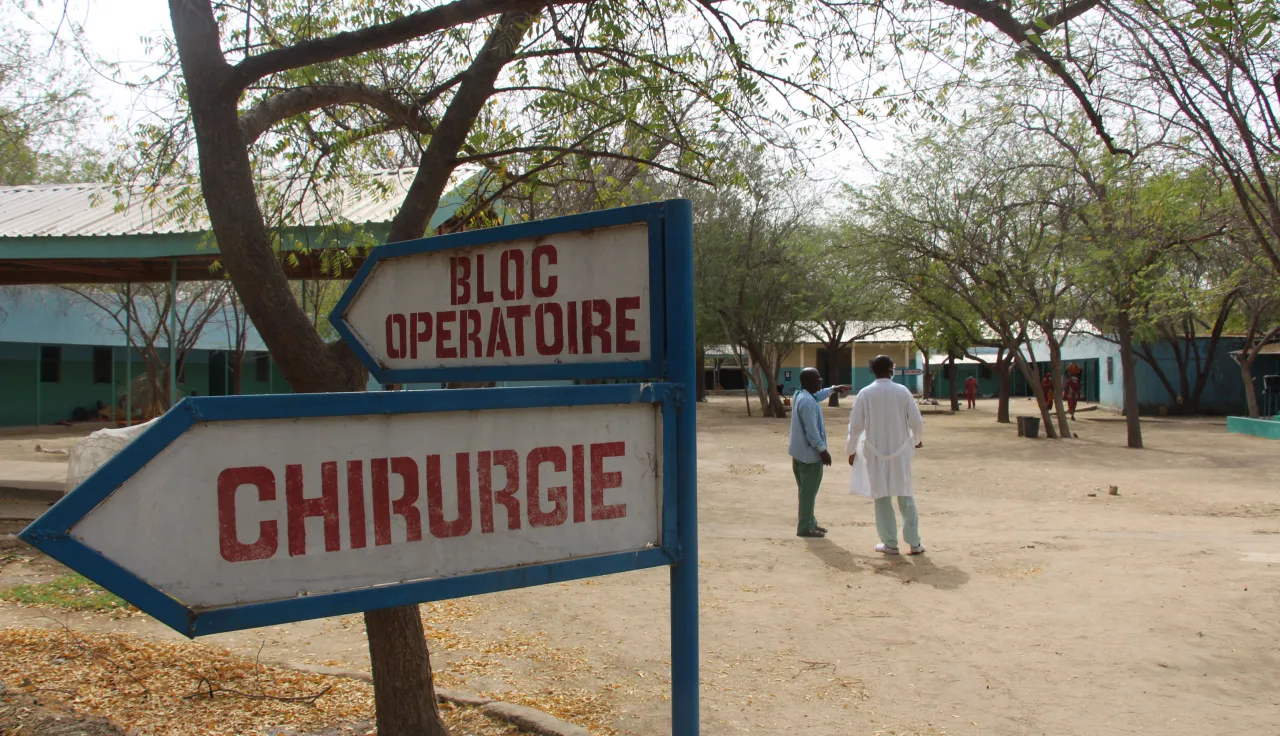
In the heart of the Lake Chad basin, a region racked by a conflict that has already lasted seven years, stands Mada Hospital, the only one for miles around whose surgeons can perform war surgery. Patients pour in from Cameroon, Chad, Niger and Nigeria. We heard the stories of some of those receiving treatment in the hospital.
The people living in the Lake Chad basin have been suffering since the end of the 2000s, when violence first erupted in Nigeria before rippling out to the neighbouring countries that share the lake. Attacks have multiplied in the Far-North Region of Cameroon since 2014, becoming increasingly violent. Civilians are often the targets, and thousands have lost their lives.
Samuel, shot in an attack on his village
Samuel, 60, is a farmer living on the island of Tchika in the Cameroonian part of Lake Chad. One night, he was shot when his village was attacked by armed men.
"Men broke down my door. I thought they were just burglars, so I rushed at the first one with a machete. He shot me."
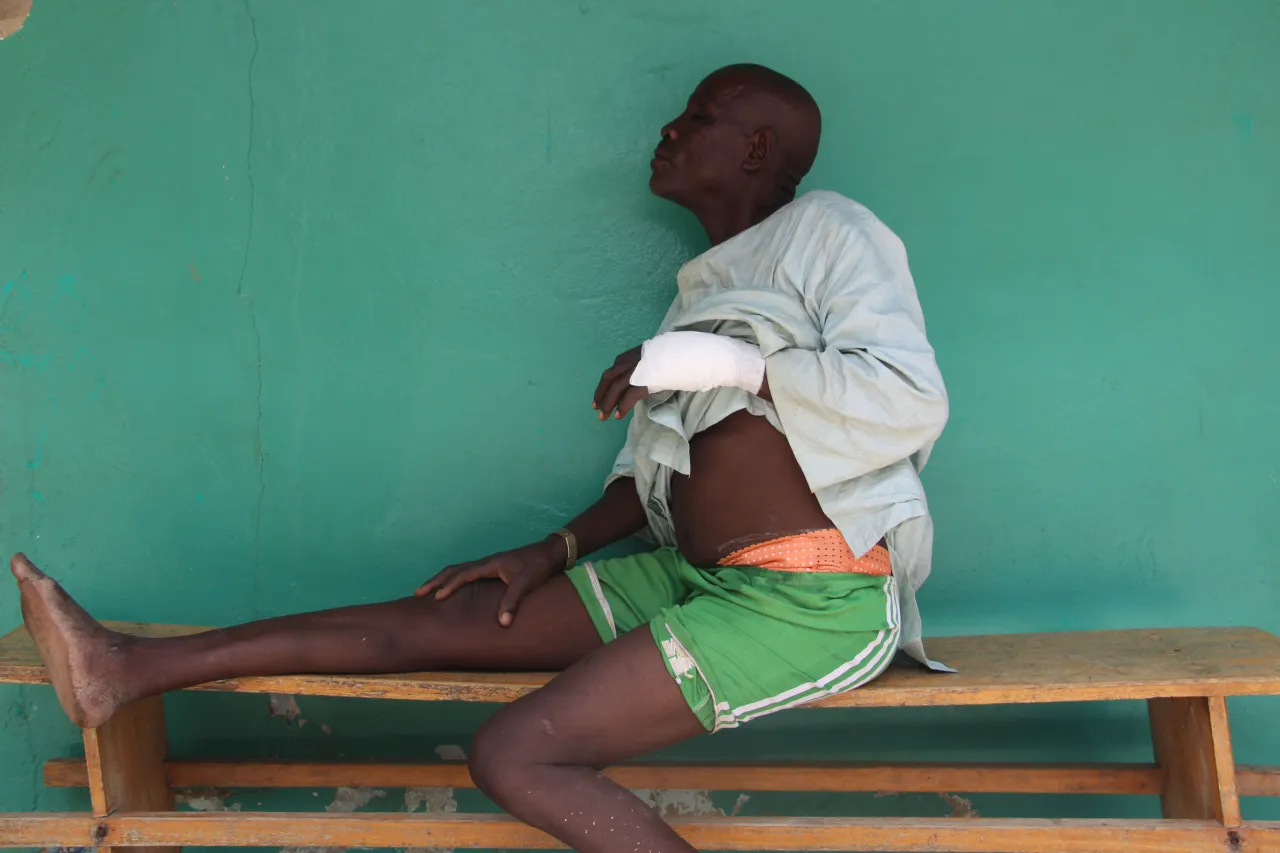
After the men had ransacked his house, they left Samuel for dead. Wounded in the hip, he managed to drag himself to a neighbour's house to ask for help. "But no one wanted to help me," he says bitterly.
In this part of the country, travelling by night is risky, especially after an attack; people are afraid of being mistaken for the enemy.
Exhausted and getting no help, Samuel collapsed and lost consciousness. It was only at sunrise the next day that his neighbours at last came to his assistance and took him the 30 km or so that he needed to go to reach his only chance of surviving: Mada Hospital.
As soon as he arrived, Samuel was rushed to the operating theatre. "He was lucky. The bullet didn't touch any vital organs," explains Dr Rabo, a surgeon. "It went straight through him, which reduced the risks of surgery. We were able to save him despite him being brought to us so late."
Several days after his operation, Samuel is still in hospital. But he knows it will take time to make a complete recovery. Fortunately for him, his treatment won't cost him a thing. All of his medical bills will be paid by the ICRC, which – thanks to our partnership with the hospital – ensures that everyone who comes to the hospital with war wounds receives treatment for free.
Faltmata, pregnant, had to walk for five days to reach a hospital
"When it started, I had unbearable pains in my belly. It was so bad that I lost consciousness."
When Faltmata, 20, arrived at the hospital, she was suffering from severe abdominal pains.
On top of that, she was tired from walking for five days in search of a hospital that could take care of her while pregnant with her first child.
Faltmata had walked from a camp for displaced people in Nigeria. She had already tried to receive treatment at two health centers before finally being referred to the hospital in Mada.
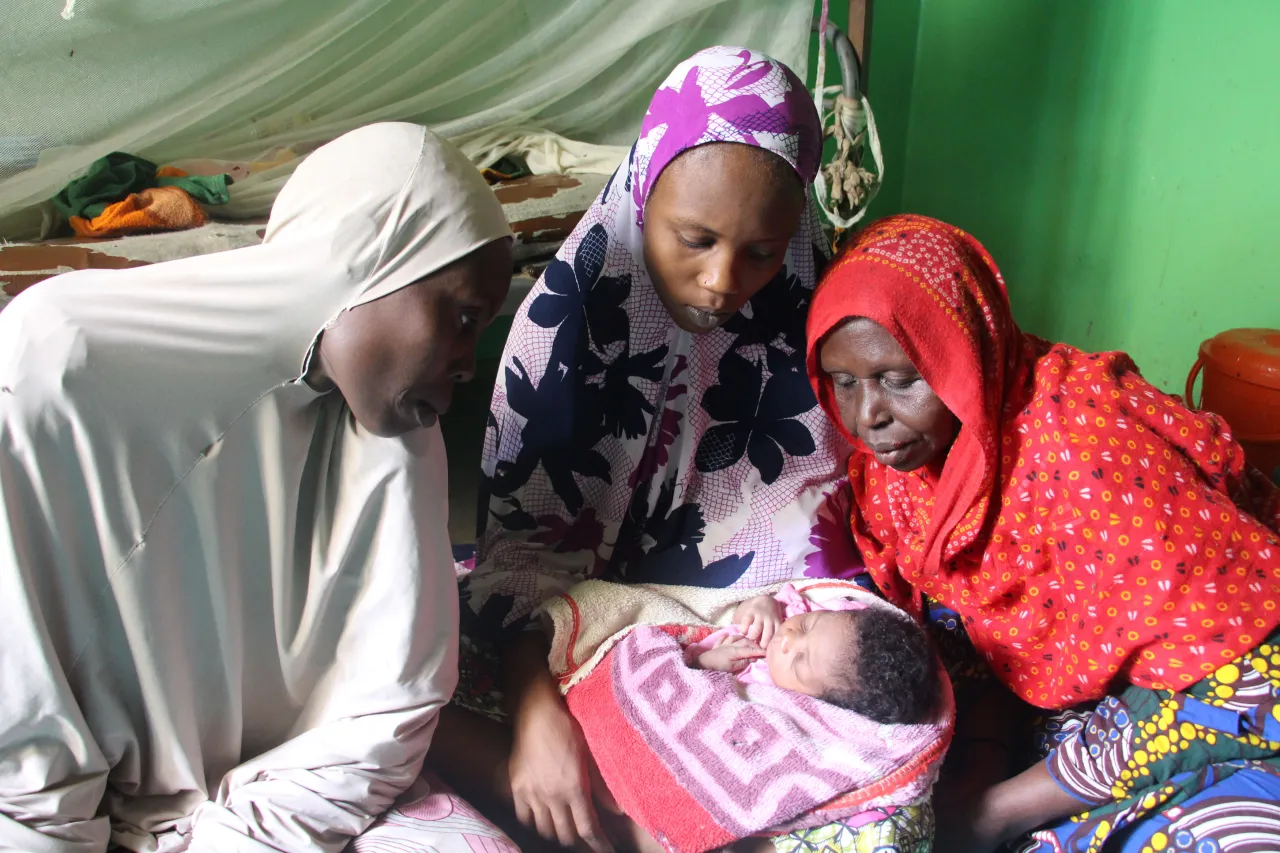
"When the pains started one evening, my mum and my grandma took me to the camp hospital, but no one who could have taken care of me worked nights. So, we went to Fotokol, a town in Cameroon on the border with Nigeria. But they told us we should go to Mada Hospital as it was better equipped to give me what I needed."
Faltmata had been in labour for five days when she gave birth to her daughter.
The increasing lack of security has taken a heavy toll on access to health care. The risk of staff being kidnapped or attacked is taken very seriously; sadly, this has meant that some support activities at Mada Hospital and in health centres in remote villages in the same district have had to be suspended. In addition, the number of people being admitted for emergency treatment after being attacked is another outcome of the conflict in the region.
Woulmé waits to see if her child can be saved
Woulmé comes from Chad. When we met her, she was unsure about the health of her unborn child. "He's stopped moving," she says sadly, a copy of her last ultrasound scan in her hands.
Kaou, sitting next to her, has no more hope. A caesarean section saved her life, but it was too late to save her baby.
Caesareans at the hospital, like war surgery, are paid for by the ICRC.
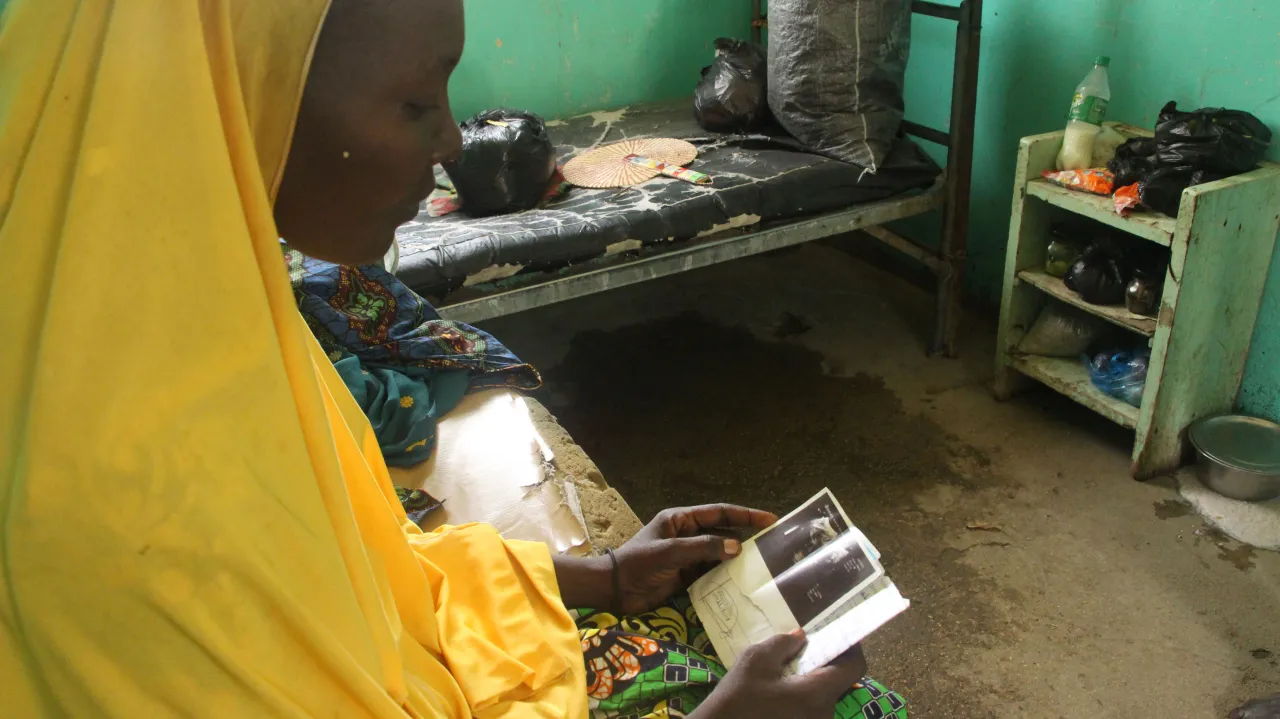
Getting ready to face the worst
"It's hard to see someone die in front of you, especially when they're so young," says André, an administrator at the hospital. The attacks have shocked André and his colleagues.
In January 2016, a bomb went off at a market; hundreds of people, some of them seriously injured, were rushed to emergency. But "despite the violence of the attack, the hospital was able to cope," he says. "The techniques and knowledge we'd learned less than a week before at an ICRC workshop enabled us to keep everyone alive."
For their exceptional work, the hospital staff was thanked by the authorities.
With a smile André says, "We're a beacon of hope in a sea of violence."
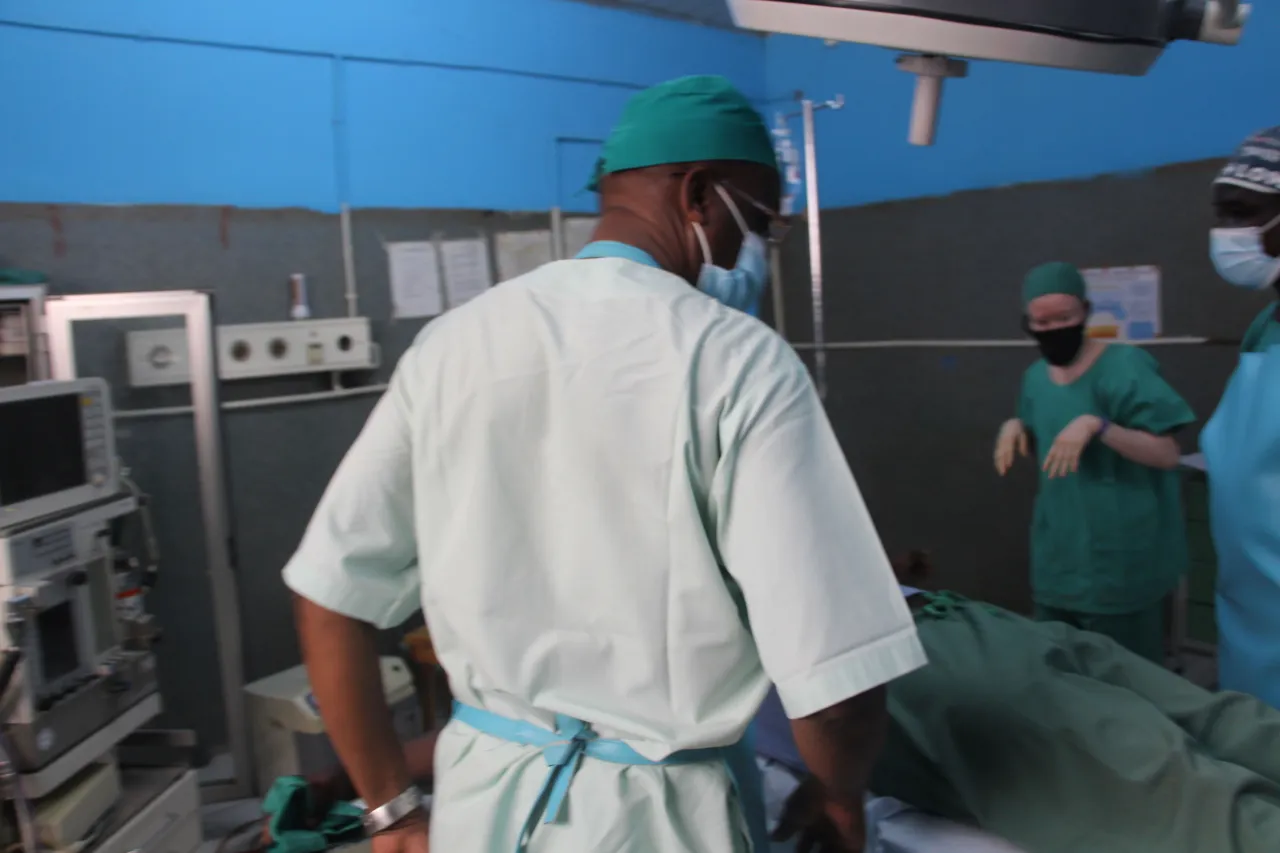
Mada Hospital was founded in 1975 by Dr. Maggi, a Swiss doctor who spent most of his life and career in Cameroon until his death in 1988. The Helvetic foundation "Hôpital de Mada - Opera umanitaria dr. Maggi (HHM) de Lugano-Breganzona" now owns and manages this health structure: www.fondazionemaggi.ch.



